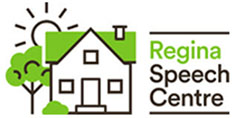To kick off Literacy month we want to talk about change. I love the saying: BE THE CHANGE YOU WISH TO SEE IN THIS WORLD. This year at Regina Speech Centre we have been working to bring about change in reading instruction in Saskatchewan. We are determined to be a part of the grass roots movement that brings the right research based supports to ALL children in schools in our province. We have been busy writing emails and letters, providing workshops on the science of reading, and offering reading instruction based on the science. We are so proud of all the teachers and parents that are taking note and pushing for change along with us.
Today we want to highlight this important information. The Saskatchewan Human Rights Commission is studying how children with reading disabilities, including dyslexia, experience and receive accommodations in Kindergarten to Grade 12 classrooms. As part of this systemic initiative, the Commission has prepared surveys for stakeholders with personal or professional experience.
One survey is designed for students/families who have lived experience with system navigation, accommodation, and other aspects of learning to read in the context of reading disabilities. The second survey is designed for teachers, school administrators, psychologists, speech and language pathologists, occupational therapists, and other professionals who work with students who have, or may have, learning disabilities.
We want to encourage you to take time to have your voice heard and follow the link below and take time to respond if you are a parent or professional.
https://saskatchewanhumanrights.ca/systemic-advocacy/students-with-reading-disabilities/
In case you want to know what might happen after this hearing we can look to other provinces who have undertaken the same investigation. On February 28th the Ontario Human Rights Commission released a report on their findings of their investigation of the Right to Read. We hope to see similar findings here in Saskatchewan. I have listed below just a few of the findings. If you are interested in reading the full report you can follow the link below.
https://www.ohrc.on.ca/en/right-to-read-inquiry-report
Revise the Kindergarten Program and Grades 1-8 Language curriculum
- The Ministry of Education (Ministry) should work with external expert(s) to revise Ontario’s Kindergarten Program and Grades 1–8 Language curriculum to:
- Remove all references to cueing, cueing systems and guessing strategies for word reading
- Remove all references to any other instructional approaches to teaching foundational reading skills that have not been scientifically validated
- Require mandatory explicit, systematic and direct instruction in foundational reading skills, including phonemic awareness, phonics and decoding, and word reading proficiency
- Beginning in the Kindergarten Program and continuing in the Grades 1–8 Language curriculum, explicitly state expectations for teaching phonemic awareness, letter-sound associations, word-level decoding (including blending sounds to read words and segmenting words into sounds to write words), word-reading proficiency or fluency (number of words read per minute) and knowledge of simple morphemes. The Grades 1–8 Language curriculum should include more advanced word study in and beyond Grade 2/3, and outline more advanced expectations with morphology, knowledge and analysis of words, through the middle grades and beyond
- Incorporate other aspects of a comprehensive approach to literacy which are addressed in the research science such as evidence-based instruction in oral language, reading comprehension, vocabulary knowledge and spelling and writing.
- The Ministry should specify that all critical elements of explicit, systematic and direct instruction in foundational word-reading skills in the revised Kindergarten Program and Grades 1–8 Language curriculum are mandatory and not optional. The Ministry should provide specific and scaffolded grade-level expectations for each foundational word-reading skill. The Ministry should clarify that early literacy skills, such as phonemic awareness, knowledge of letter names and sounds and how to print letters, and decoding simple words are all expected in Kindergarten.
THIS MESSAGE IS SO POWERFUL! It’s also so hopeful, we are so excited to see the voices of parents and educators be heard. Make sure you get a chance to add your input. We want to see governments and school districts be held accountable and offer instruction that meets the needs of all children and this investigation is a step in the right direction. Let’s all be part of the change that is coming in the world of reading.

